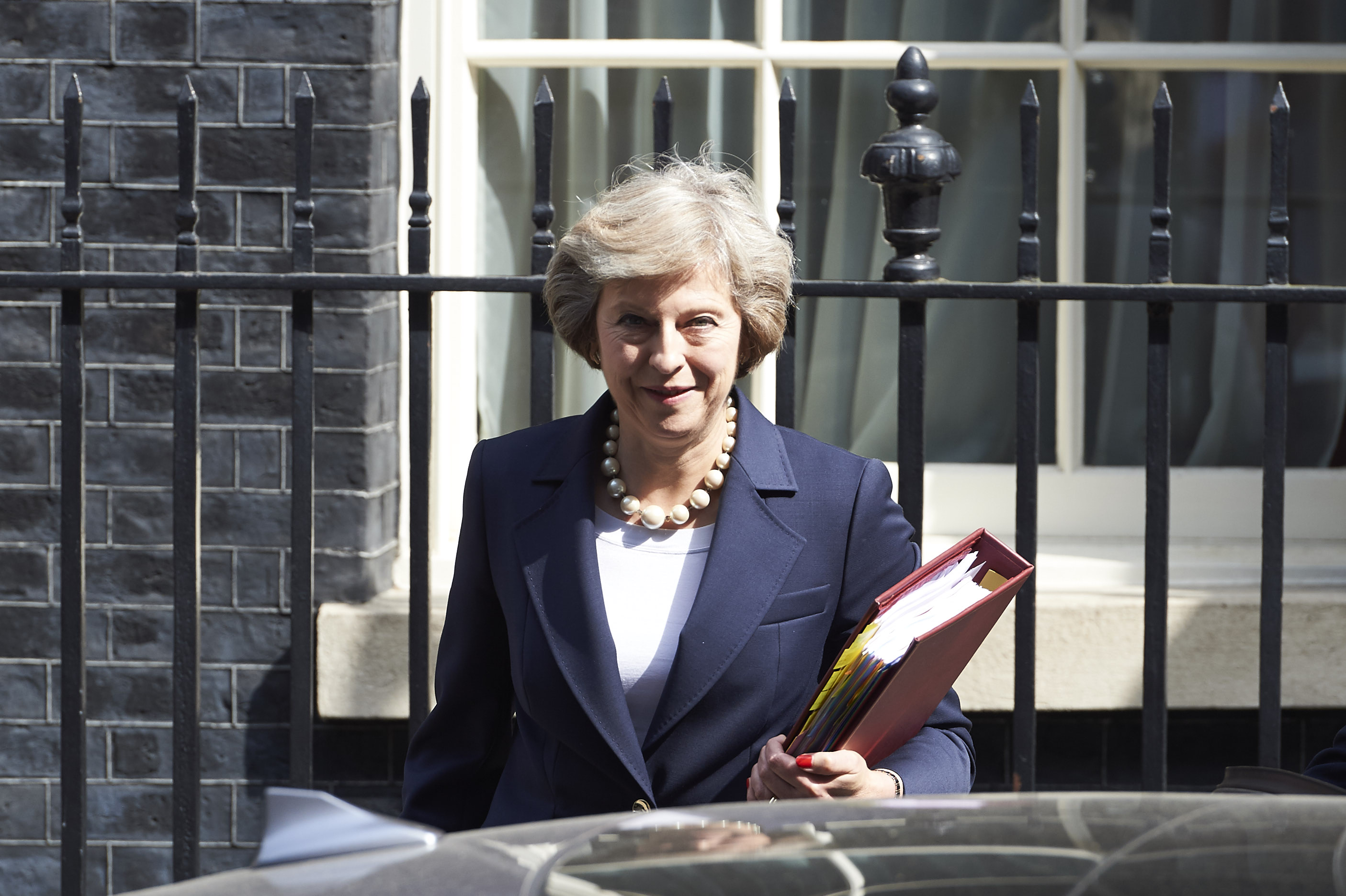
London: Prime Minister Theresa May will try to reassure allies over Britain's vote to leave the European Union when she meets German Chancellor Angela Merkel on Wednesday and then heads to France in her first foreign trips as leader.
May, appointed a week ago after David Cameron resigned over the result of the EU vote, will make clear she will not be rushed into triggering Britain's divorce because she needs time to put together a negotiating stance.
But by heading to Germany and France, soon after visiting Scotland and Wales to underline her desire to keep Britain united, May will sound out two of the EU's most powerful leaders, Merkel and French President Francois Hollande, as she prepares to launch the complex negotiation for Britain's exit. May can expect tough talks with Merkel and Hollande, who have shown no sign that they will make things easy for post-Brexit Britain. May said she was heading to Germany and France so soon after taking office because she was determined Britain would "make a success of leaving the European Union".
"These visits will be an opportunity to forge a strong working relationship that we can build upon and which I hope to develop with more leaders across the European Union in the weeks and months ahead," she said in a statement. "I do not underestimate the challenge of negotiating our exit from the European Union and I firmly believe that being able to talk frankly and openly about the issues we face will be an important part of a successful negotiation." May's spokeswoman characterised the visits as "a first conversation" and said the prime minister would not get into detailed discussions on Brexit.
The British leader also spoke to European Council President Donald Tusk on Tuesday, telling him Britain needed to carefully prepare for Brexit negotiations before it invokes Article 50 of the EU's Lisbon Treaty to trigger the formal exit procedure. "Donald Tusk reassured the prime minister that he will help to make this process happen as smoothly as possible," a spokeswoman for May said on Wednesday. May also told Tusk Britain would relinquish its rotating presidency of the council, due to begin in July 2017, in order to prioritise negotiations on leaving the bloc.
EU leaders have said they will not enter into formal negotiations with Britain until it triggers Article 50. But there is a clear desire for May to scope out attitudes in Europe, especially with Merkel. The German leader has indicated that the EU's biggest member states - rather than its institutions - will lead the talks. German foreign minister Frank-Walter Steinmeier told Reuters he expected Britain to act as quickly as possible to end the period of uncertainty for it and Europe. MILITARY HONOURS May will be received on Wednesday in Berlin with military honours and meet Merkel for a working dinner.
On Thursday, after returning to Britain, she will head to Paris to meet Hollande. The former interior minister is under no illusion about how tough the talks on Britain's departure might be. May, who has struggled to control migration into Britain, must try to balance voters' demands for a reduction in movement of people from the rest of the 28-country bloc and a desire from business to keep access to the lucrative EU single market.
Described as "utterly intractable" by a Cameron ally, May will be up against the equally pragmatic Merkel, who has told Britain it will not be able to "cherry pick" what it wants to keep from its EU membership. Hollande, under pressure after last week's deadly truck attack in Nice, will also be firm in demanding that Britain either sign up to EU rules or suffer the consequences.
He is keen to dampen the popularity of Marine Le Pen and her far-right National Front, which wants a French "Frexit". May also wants to reinforce the importance to Britain of continued cooperation against terrorism. "I also want to deliver a very clear message about the importance we attach to our bilateral relationship with our European partners, not just now but also when we have left the European Union," she said. "These relationships have been vital in the past and they will be vital in the future as we continue to work together to keep our people safe and to support economic growth that benefits people across our countries."